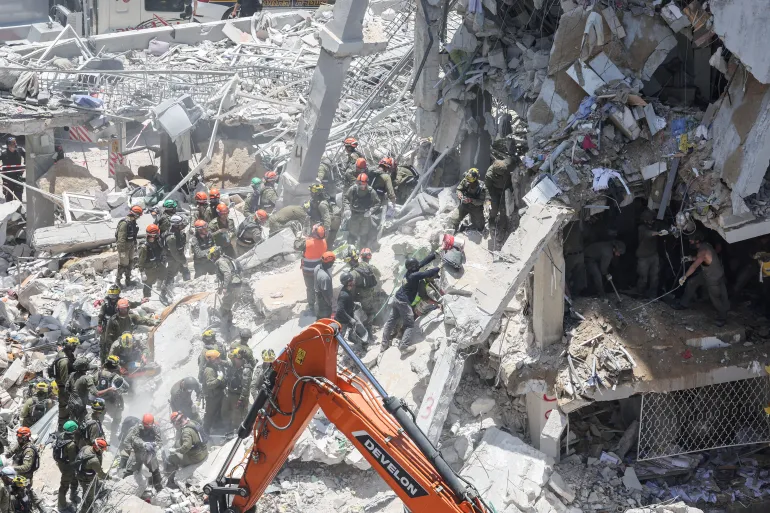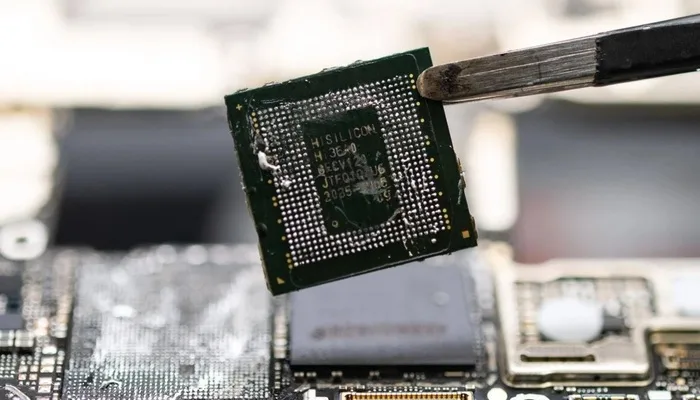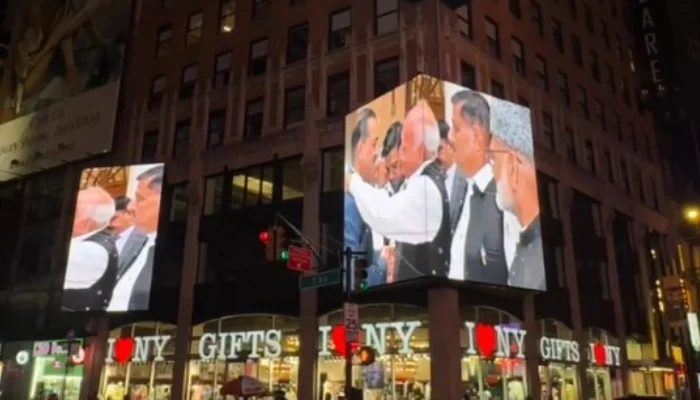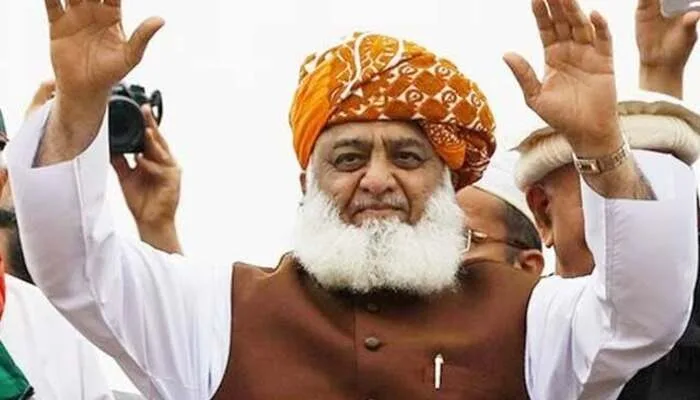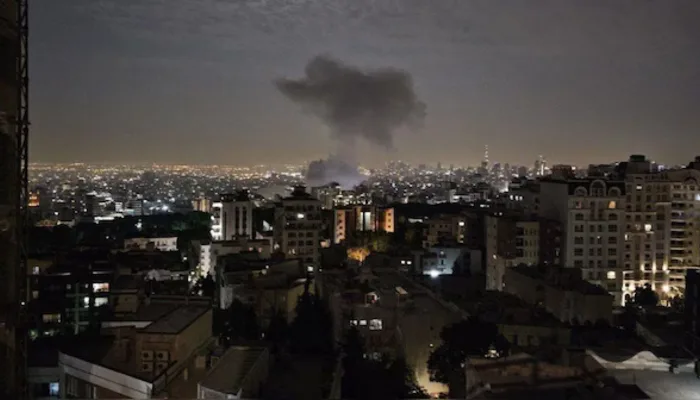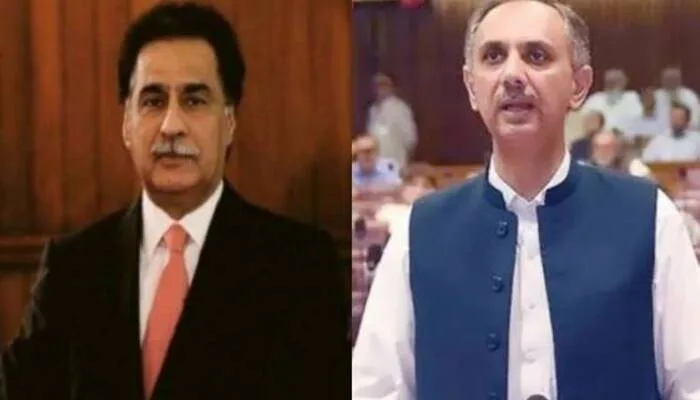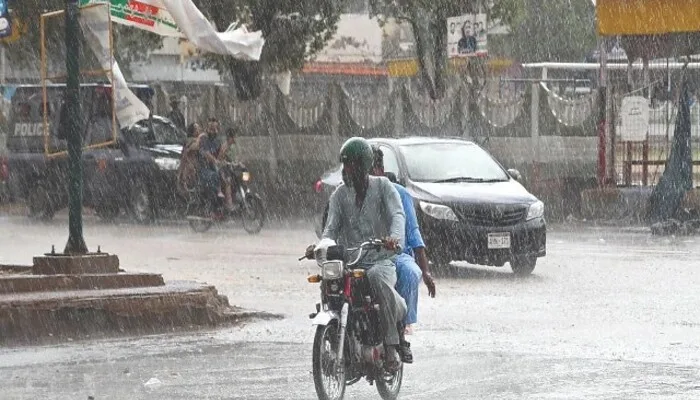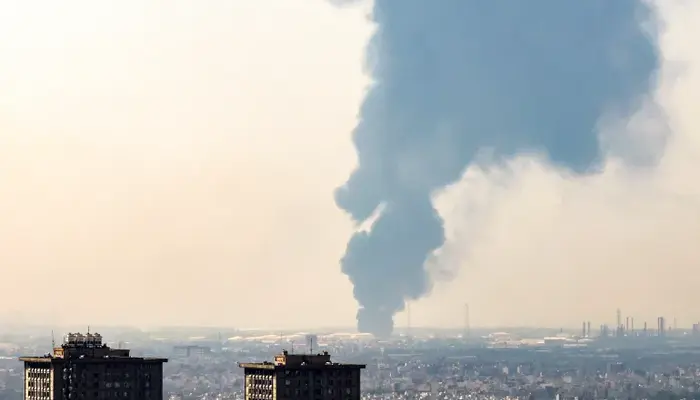
Iran’s Foreign Minister Abbas Araghchi has accused the United States of playing a direct role in Israel’s recent strikes on Iranian cities and infrastructure, calling it a “clear partnership in aggression.” Speaking at a press conference in Tehran on Sunday, Araghchi declared that the attacks would not have been possible without “US agreement, support, and weaponry.”
“We have well-documented and solid evidence of the support provided by American forces in the region and their bases for the military attacks of the Zionist regime,” Araghchi stated. He further added that US President Donald Trump had openly admitted to knowing about the attacks beforehand and confirmed that American equipment and intelligence had been involved.
“Therefore, the US, in our opinion, is a partner in these attacks and must accept its responsibility,” said the minister, rejecting claims made through intermediaries that the US had no involvement in the Israeli operations.
The attacks on Iran’s nuclear facilities in Natanz and other cities came just before a sixth round of nuclear talks between Iran and the US, scheduled in Oman. Araghchi claimed Israel deliberately struck before negotiations to sabotage diplomatic progress, calling it a continuation of Tel Aviv’s consistent opposition to diplomacy.
He demanded a clear condemnation from the US, saying, “This act is condemned under international law, and our expectation is that the US government, in order to prove its good faith, will condemn the attack on a peaceful nuclear facility and distance itself from this conflict.”
Read:US Assists in Defending Israel Amid Iranian Attacks: Sources
Retaliation and Rising Civilian Toll
Since Friday, Israeli attacks have struck multiple Iranian cities, including Tehran, Bushehr, and Isfahan, leaving at least 80 people dead, according to Iranian officials. The casualties include civilians, high-ranking IRGC commanders, nuclear scientists, and university professors.
In retaliation, Iran launched extensive strikes on Israeli targets, including critical infrastructure in Tel Aviv and Haifa, using hundreds of drones and ballistic missiles. These counterattacks reportedly killed 10 people and injured dozens in Israel.
Araghchi said Sunday’s retaliatory barrage focused on Israeli energy infrastructure after Israel hit Iranian power stations, oil reserves, and gas installations. One of the most severe attacks came on Asaluyeh in Bushehr province, home to Phase 14 of the South Pars gas field—the largest in the world.
Calling the attack on South Pars a “major strategic mistake,” Araghchi warned, “The Persian Gulf region is extremely sensitive, and any military escalation here could draw in the entire region and potentially ignite a global conflict.”
Fresh Israeli air raids continued on Sunday, striking several neighborhoods across Tehran, including Shahran, Valiasr, and Niavaran. The Shahran strike caused a massive fire at a fuel reserve, which authorities managed to control after hours.
Despite the intense exchanges, Araghchi indicated Tehran was willing to halt hostilities if Israel stopped its aggression. He appealed to the global community to intervene and condemn the Israeli strikes to prevent further escalation.
Nation Rallies as Tensions Deepen
Inside Iran, Sunday marked a shift in public tone and national media messaging. Major newspapers across the spectrum reflected a sense of urgency and unity.
Hardline outlet Kayhan, whose editor is appointed by Supreme Leader Ayatollah Ali Khamenei, declared, “We will finish the war and Israel together,” praising the Iranian military’s retaliation. The reformist Ham-Mihan ran the headline “National Battle,” while Etemad referred to “Israel’s gamble on a minefield,” portraying the situation as perilously escalating for Tel Aviv.
For the first time in nearly 40 years, state TV broadcast the victory march anthem, last aired during the 1980s Iran-Iraq War, signaling how seriously the government views the current conflict.
Tehran’s City Council chairman, Mehdi Chamran, announced that shelters from the Iraq war era—including metro stations, mosques, and underground car parks—may soon be reopened to the public as civilian protection sites. “No new dedicated shelters have been built since then, and we must now rely on existing infrastructure,” he said.
The government cancelled all flights nationwide, with spokeswoman Fatemeh Mohajerani assuring citizens that preparations were underway to ensure supplies of essentials, including fuel, if the crisis prolonged.
Meanwhile, the economic pressure from the conflict began to show. The Tehran Stock Exchange remained closed on Sunday, and authorities said any decision on reopening would depend on developments overnight. The Iranian rial continued its freefall, dropping from 840,000 to 955,000 per US dollar since the conflict began.
Despite the hardships, Araghchi emphasized the resilience of the Iranian people and institutions. “This is no longer just a political or military conflict—it is a national struggle for sovereignty and survival,” he said.
With both Iran and Israel vowing continued strikes, the region remains on the edge of a broader war. Calls for de-escalation grow louder, but with heavy losses already incurred, the road back to diplomacy appears steeper than ever.



